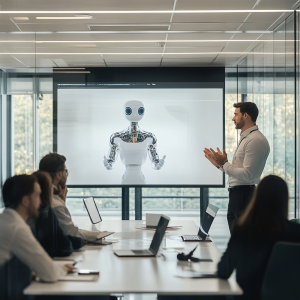At Their Best, Self-Learning Algorithms Can Be a “Win-Win-Win”

BlueSky Thinking Summary
In the pandemic, Sébastien Martin of the Kellogg School led a transformative project at Lyft to enhance their ride-matching algorithm using reinforcement learning.
Traditionally, algorithms such as nearest driver matching have proved inadequate during peak demand, leading to delays and reduced efficiency.
He developed an algorithm capable of self-improvement through real-time learning that predicts driver availability and passenger demand more precisely.
This innovation not only optimized driver utilization but also increased company revenues by over $30 million annually, reduced ride cancellations by 3%, and reduced unavailable drivers by 13%.
Of course, this had been a rather big challenge to implement such an autonomous algorithm;
furthermore, even the adoption inside the company would not be easy.
Still, the results ended up showing remarkable benefits for all: passengers, drivers, and the platform.
The approach that Martin has taken exemplifies exactly how advanced algorithms could revolutionize operations to give extraordinarily better service quality and business performance.



